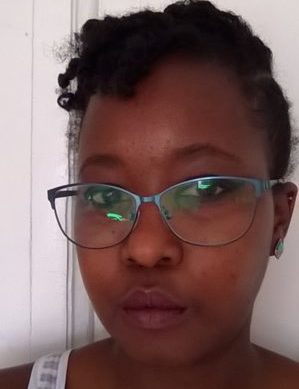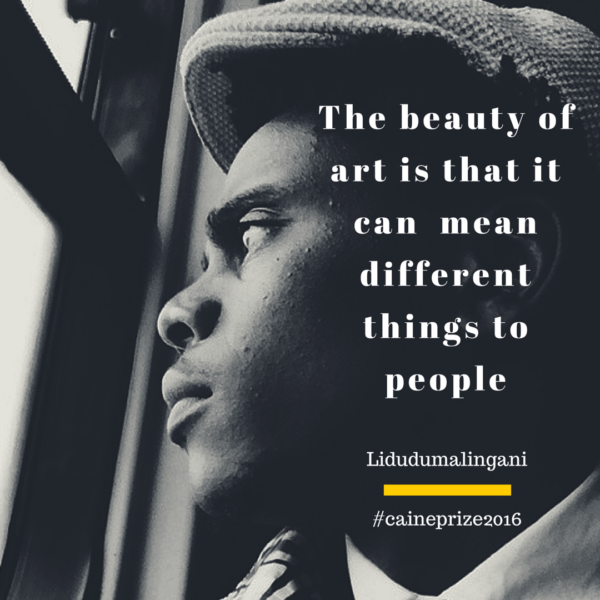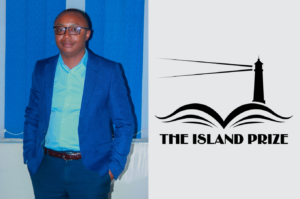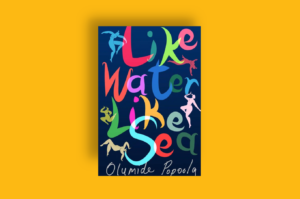Each day brings us closer to July 4th when the 17th winner of the Caine Prize for African Writing will be unveiled.
You’ve either read the shortlisted stories or read the reviews we posted right here on Brittle Paper. You have a sense of what the stories are about. You know whether you like them or not. You have your favorites, who you’d like to win, and so on. Well, it’s now time to shift focus from the stories to the brilliant minds that concocted them.
We knew this time would come, so while you were getting acquainted with the stories, we were busy interviewing each of the shortlisted authors. We wanted you to see a side of these writers that you didn’t get from reading their stories. Here is the third interview in the series of five. We would like to thank Nairobi-based writer Akati Khasiani for fielding the questions.
Lidudumalingani is a South African writer, filmmaker and photographer. Some of his work is available on his Instagram page which we profiled a few weeks ago [read here]. His shortlisted work is a story titled “Memories we Lost.”
“Memories We Lost” was reviewed by Ikhide Ikheloa who points out that Lidudumalingani’s “ability to conjure powerful images with just the written word is phenomenal” and “awe-inspiring.” [read here if you missed it]
Enjoy reading!
***
Congrats on making the Caine Prize shortlist. How is being shortlisted significant for you?
Thanks Akati for the well wishes. The shortlist is significant for me in two ways. One is that around the time the announcement was made, I had been trying to write and struggling. This was not new. My writing process unfolds like this, but around this time I was struggling more than usual, the announcement of the shortlist came and rescued me from what appeared to be an ever-ending streak of struggling to write. The second way in which the shortlist is significant for me is that my writing has found a wider audience that seems interested in it.
The prize is awarded for outstanding “African writing.” We are curious about what ‘African writing’ means to you? Let’s be the first to agree with you that it is an old and tired question. But we are hoping that you’ll humour us and take it as a chance to reflect on the modifier “African” and, perhaps, its place within your work and your sense of yourself as a writer.
One only has to look at the variety of literature that has come out of Africa, recently and in the distant past, to realize that to answer the question about what is African writing, is making an attempt at the absurd. I hope the ‘African writing’ as used by the Caine Prize only means a writer that is from Africa, in the various ways that one can be from a place, and not the story itself because it is hard to imagine what an African story would be and who in fact has decided that formula for it. As a result, I find it hard to answer that question because I do not, amidst a story, stop and think about what is African about this sentence or that paragraph or the story. It has become clear to me that such a modifier is only important if you are a writer coming from Africa, that if you come from anywhere else, the writing needs only to be literature and that is good enough. The modifier ‘African’ appears only important enough for us writers from Africa to justify our place in the world or to explain ourselves or to respond to a Western world that imposes it on us. We have, I feel, which is far more damaging, begun to impose this on ourselves, instead of refuting it and dismissing it, we entertain it. My writing is concerned with bringing stories that come to me to the world and do so with the utmost respect to those it concerns itself with and not as a form of argument against views about Africa literature.
What’s most important to you in the crafting process? The theme/subject/topic of the story or the form/experimentation/aesthetics of storytelling?
I obsess, at different stages in the writing process, about different things. Sometimes it is the topic, other times it is the story and other times the aesthetics. The first is always finding something to write about or opening myself up for something to come to me and then obsess about it over weeks, months, years even, allowing it to reveal its larger theme, its smaller themes, its aesthetics and then let it out unto a page and continue to, when it allows, to work on it until it is closer to what I want it to be.
This year’s stories all featured characters dealing with pain in some way, whether a personal trauma or a form of societal or generational suffering. How would you account for this emphasis on suffering—given the criticism that African writing only gets consumed by a global audience when it deals with negative tropes?
It would be ridiculous, even suicidal, for any writer to sit at their writing desks and produce literature that ticks off boxes. My story bothered me for many months. On some days I dodged it, preoccupied myself with something else, something less important, less demanding, but it would come back and I had to write it. In the period of writing the story, I had moments in which I could feel my brain heat up and almost explode. I sat, often late at night, writing, or not writing, simply staring at an empty page, considering this, it will be ridiculous for me to write to fit into the prescribed guidelines of what literature from Africa should do and not do. I write because the stories haunt me and the only way to free myself from them is to write them down. I do not write with an audience in mind, the work finds its own audience, or forms it all by itself, and as such, people will have their views on my work, and I think that, whether I agree with that view or not, the reader is entitled to it.
Your descriptions of scenery are very rich. Would you say your work as a visual artist influences your evocation of setting?
Thank you so much for the compliment.
The words found me first and then many years later the images did—first moving images and then much later, still images. I would argue that writing is a visual medium, at least, my obsession with writing is painting images in the readers mind, or at least, give the reader enough to allow them wander in the scenery, to picture the characters face, to see the characters walking, forming their own images. I think my photography and writing depend on the same idea about of looking at the world. I think, perhaps, the best way to think about my writing, only to think, not that it is influenced, is the thinking involved when I am making an image. What is in the frame? What is moving? Where is it moving? How many colors are in the frame? Are the colors working together? My writing, any writing, is exactly like that.
The filmmaker, the photographer, and the fiction writer tell stories differently. Does it feel weird being all three rolled into one? Do you find that being able to draw from these different forms informs your style, your process, and your sense of self as a writer?
Strange enough between the three I find that screenwriting, a text based medium, is for me quite different from fiction than photography is. When I am working as a screenwriter I am constantly trying to tear my mind away from writing. I write as little as I can. Films are visual mediums, and this is what I want to achieve with films. It is great that I can easily write dialogue and describe scenes well, but, often, when I work as a scriptwriter I am at war with words, constantly erasing them, leaving the visuals to tell the story, working as a director at the same time as I write the script. Photography and the fiction or non-fiction are harder to tell apart. I do find photography a lot easier to produce than writing. I am able to think and produce a lot faster with photograph compared to writing which often requires weeks of writing something. The short answer, I suppose, is that there is a relationship among all three in the way I work, but there is also, like any other relationship, moments at which they are at odds with each other. But at their core, all three are concerned with storytelling and poetry.
A few things—the nameless characters, the shared loss of the titular memories, the easy interchange of ‘we’ and ‘I’,—can slant the story to be that of a protagonist with mental illness who has named her symptomatic self ‘my sister.” Is this a possible reading of your story? Or is it simply a description of a very close bond between siblings?
It was during the re-writing process that Joanne Hichens, the editor of the Incredible Journey anthology, pointed this out to me and suddenly it occurred to me that this precious baby of mine had left my nest and was now inhabiting the world, all by itself, without anyone imposing meaning on it, and I found this, for the story, liberating. The beauty of art is that it can come to mean different things to people, so the story can be read in this way or that it is about a close bond between siblings or something completely different to these two.
Finally, what was your favorite of the other stories?
This is probably going to sound boring, but I really enjoyed all of them and found them in their own way to be amazing pieces of writing.
Thanks to Lidudumalingani for taking the time out to respond to these questions. We wish him all the best!
Click here to read more of the #caineprize2016 interviews and here to read the reviews.
*************
About the Interviewer:
 Akati Khasiani is a city-bred, country-loving, Kenyan writer, doctor and soon-to-be economist with opinions and a tendency to daydream. Her work was featured in the Jalada 01 anthology.
Akati Khasiani is a city-bred, country-loving, Kenyan writer, doctor and soon-to-be economist with opinions and a tendency to daydream. Her work was featured in the Jalada 01 anthology.










The Caine Prize for African Writing 2016: Lidudumalingani – bookish July 05, 2016 02:54
[…] Brittle Paper’s interview with the author go here, and the winning story […]